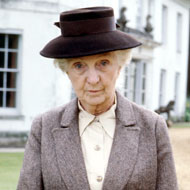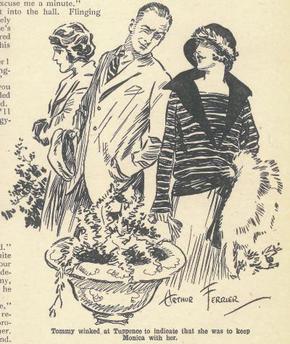After finishing my most recent edit of Magic and Mayhem, I decided it was time to stretch my writing comfort zone a little, and try my hand at some short stories. You know, because I’m such a terse writer, so good at brevity and clarity, using a minimum of words to convey a maximum of ideas.
HAHAHAHAHAHAHAHAHAHAHAHA.
It’s been a learning experience, to say the least. One short story has turned into a novelette. One just managed to squeak in under 7,000 words, but I did have a stroke of brilliance the other day about some editing I can do in order to pare it down by a thousand words or so. One has had two or three incarnations, and is currently mocking me in its still-unfinished state. One seems promising right now, but I have to keep going back and deleting half of it, because my characters go and get all wordy and rambly and off-track.
However! Along with this frustration (I was estimating how long most of Agatha Christie’s short stories were the other evening, and tossed aside the book with a wail of despair. HOW did she pack so much into so few words?), I’m actually learning some useful tips for writing short stories, and thought I’d share them here. So,
- Outline. Letting your characters and plot meander about while you figure out what’s happening one step ahead of them may work well enough in a novel, but short stories need outlines. detailed outlines. Outlines that are practically a story in and of themselves.
- Eliminate irrelevancies. This one is both hard and painful for me. I adore irrelevancies! Just look at how many parenthesis I use in any given blog post! Irrelevancies are my life’s blood! Only not in a short story.
- Pare down the cast. Casts of thousands might work well in fantasy epics; not so much in short stories.
- Have a point, and stick to it. See #2.
- Be ruthless. I know this is a general rule for writing novels, as well, but even more so with short stories. I don’t care how brilliantly written the heroine’s walk through the woods is, it is taking up 1,000 words to advance her somewhere that could be achieved with 10. Cut it. If you love it that much, save it to use in a novel someday.
- Keep scrap paper nearby for jotting down issues and problems as they arise, or interesting potential plot bunnies, or anything that is going to interfere with the tight flow of the story. You might need them later, or find you can use them in something else (see #5), but visually, you don’t want them with the story itself.
- Study how the greats do short stories. Chances are, you might see a pattern. Besides, it will give you something worthwhile to read while your own stories are dancing circles around you.
- Keep the words and sentences themselves brief. It will help your brevity overall. Hard to stick with 7,000 words when you use 500 of those words in the very first sentence.
- When you get too frustrated, take a break. Write poetry. Draw something. Sew. Cook. Clean. Write long, rambling blog posts to get the need for MANY WORDS out of your system. If you get too, too frustrated, go back to novels. It’s ok if short stories never become your thing.
- I don’t really have a tenth point. I just didn’t want to end this with nine.









